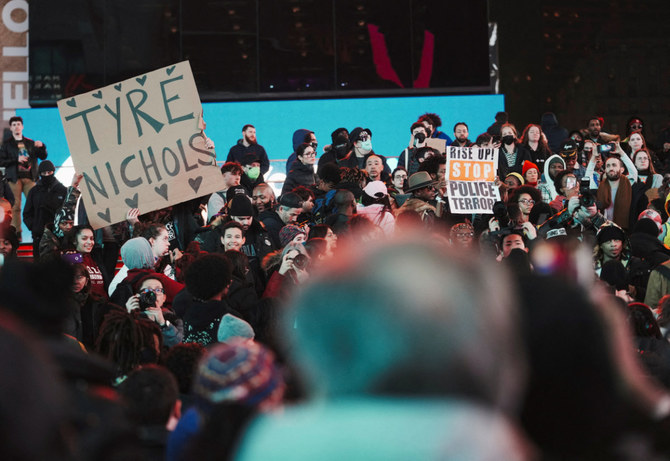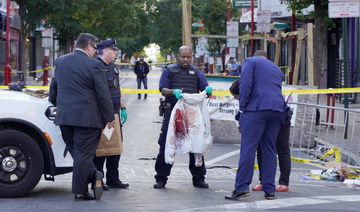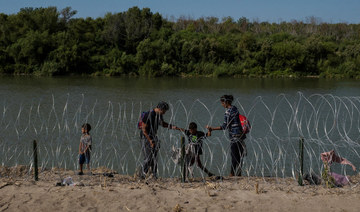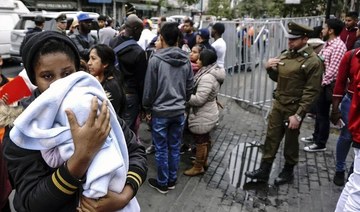MEMPHIS, Tennessee: An unarmed Black man dies after a videotaped beating by police. The officers involved are fired. After a thorough review of the evidence, criminal charges are swiftly filed against the offending officers.
Investigation, accountability and charges.
This is often the most Black citizens can hope for as the deaths continue. Nationwide, police have killed roughly three people per day consistently since 2020, according to academics and advocates for police reform who track such deaths.
Tyre Nichols’ fatal encounter with police officers in Memphis, Tennessee, recorded in video made public Friday night, is a glaring reminder that efforts to reform policing have failed to prevent more flashpoints in an intractable epidemic of brutality.
Nearly 32 years ago, Rodney King’s savage beating by police in Los Angeles prompted heartfelt calls for change. They’ve been repeated in a ceaseless rhythm ever since, punctuated by the deaths of Amadou Diallo in New York, Oscar Grant in Oakland, California, Michael Brown in Ferguson, Missouri, and so many others.
George Floyd’s murder in Minneapolis in 2020 was so agonizing to watch, it summoned a national reckoning that featured federal legislation proposed in his name and shows of solidarity by corporations and sports leagues. All fell short of the shift in law enforcement culture Black people in America have called for — a culture that promotes freedom from fear, trust in police and mutual respect.
“We need public safety, right? We need law enforcement to combat pervasive crime,” said Jason Turner, senior pastor of Mississippi Boulevard Christian Church in Memphis. “Also, we don’t want the people who are sworn to protect and serve us brutalizing us for a simple traffic stop, or any offense.”
The five Black officers are now fired and charged with murder and other crimes in the Jan. 10 death of Nichols, a 29-year-old skateboarder, FedEx worker and father to a 4-year-old boy.
From police brass and the district attorney’s office to the White House, officials said Nichols’ killing points to a need for bolder reforms that go beyond simply diversifying the ranks, changing use-of-force rules and encouraging citizens to file complaints.
“The world is watching us,” Shelby County District Attorney Steve Mulroy said. “If there is any silver lining to be drawn from this very dark cloud, it’s that perhaps this incident can open a broader conversation about the need for police reform.”
President Joe Biden joined national civil rights leaders in similar calls to action.
“To deliver real change, we must have accountability when law enforcement officers violate their oaths, and we need to build lasting trust between law enforcement, the vast majority of whom wear the badge honorably, and the communities they are sworn to serve and protect,” the president said.
But Memphis, whose 628,000 residents celebrate barbecue and blues music and lament being the place where the Rev. Martin Luther King Jr. was assassinated, has seen this before. The city took steps advocates called for in a “Reimagine Policing” initiative in 2021, and mirrored a set of policy changes reformers want all departments to implement immediately, known as “8 Can’t Wait.”
De-escalation training is now required. Officers are told to limit uses of force, exhaust all alternatives before resorting to deadly force and report all uses of force. Tennessee also took action: State law now requires officers to intervene to stop abuse and report excessive force by their colleagues.
Showing unusual transparency for a police department, the MPD now publishes accountability reports that include the race of people subjected to use of force each year. They show Black men and women were overwhelmingly targeted for rougher treatment in 2019, 2020 and 2021. They were subject to nearly 86 percent of the recorded uses of guns, batons, pepper spray, physical beatings and other force in 2021, the total nearly doubling that year to 1,700 cases.
Seven uses of force by Memphis police ended in death during these three years.
“I don’t know how much more cumulative Black death our community should have to pay to convince elected officials that the policing system isn’t broken — it’s working exactly as it was designed to, at the expense of Black life,” said Ash-Lee Woodard Henderson, co-executive director of the Highlander Research and Education Center, a Tennessee-based civil rights leadership training school.
The Nichols case — just one of the brutality cases to make national news this month — exposes an uncomfortable truth: More than two years since the deaths of Floyd, Breonna Taylor and Rayshard Brooks touched off protests, policing reforms have not significantly reduced such killings.
States approved nearly 300 police reform bills after Floyd’s murder, creating civilian oversight of police, more anti-bias training, stricter use-of-force limits and alternatives to arrests in cases involving people with mental illnesses, according to a recent analysis by the Howard Center for Investigative Journalism at the University of Maryland.
Despite calls to “defund the police,” an Associated Press review of police funding nationwide found only modest cuts, driven largely by shrinking revenue related to the coronavirus pandemic. Budgets increased and more officers were hired for some large departments, including New York City’s.
Still stuck in Congress is the George Floyd Justice in Policing Act, which would prohibit racial profiling, ban chokeholds and no-knock warrants, limit the transfer of military equipment to police departments, and make it easier to bring charges against offending officers. Biden said he told Nichols’ mother that he would be “making a case” to Congress to pass the Floyd Act “to get this under control.”
The Rev. Al Sharpton said his eulogy at Nichols’ funeral on Wednesday will include a call for new laws. NAACP President Derrick Johnson also took Congress to task.
“By failing to write a piece of legislation, you’re writing another obituary,” Johnson said. “Tell us what you’re going to do to honor Tyre Nichols. … We can name all the victims of police violence, but we can’t name a single law you have passed to address it.”
Advocates want state and federal legislation because local changes vary widely in scope and effect and can be undone by a single election after years of grassroots activism. But some say strict regulations are just the start — and the video of Nichols’ agony proves it.
“Changing a rule doesn’t change a behavior,” said Katie Ryan, chief of staff for Campaign Zero, a group of academics, policing experts and activists working to end police violence. “The culture of a police department has to shift into actually implementing the policies, not just saying there’s a rule in place.”
The five officers charged — Tadarrius Bean, Demetrius Haley, Desmond Mills Jr., Emmitt Martin III and Justin Smith — were part of the so-called Scorpion unit. Scorpion stands for Street Crimes Operations to Restore Peace in our Neighborhoods.
The Memphis police chief, Cerelyn “CJ” Davis, disbanded the unit on Saturday.
“It is in the best interest of all to permanently deactivate the Scorpion unit,” she said in a statement.
Prior to the move by Davis, Memphis Mayor Jim Strickland said it was clear that the officers involved in the attack on Nichols violated the department’s policies and training.
“I want to assure you we are doing everything we can to prevent this from happening again,” Strickland said in a statement. “We are initiating an outside, independent review of the training, policies and operations of our specialized units.”
The Memphis police union extended condolences to Nichols’ family, saying it “is committed to the administration of justice and NEVER condones the mistreatment of ANY citizen nor ANY abuse of power.” The statement also expressed faith that the justice system would reveal “the totality of circumstances” in the case.
Patrick Yoes, national president of the Fraternal Order of Police, pushed back against the conclusion that policing must change. This was not “legitimate police work or a traffic stop gone wrong,” Yoes said. “This is a criminal assault under the pretext of law.”
Protesters turned out again Friday night after the city released the video footage. Turner, the Memphis pastor, called the images “further proof that our city’s and our nation’s criminal justice systems are in dire need of change.”
“It’s not like we’re short on concrete, reasonable recommendations,” said the Rev. Earle Fisher, senior pastor of the Abyssinian Baptist Church. “What we’re short on is the political will and the commitment to making the structural changes.”























